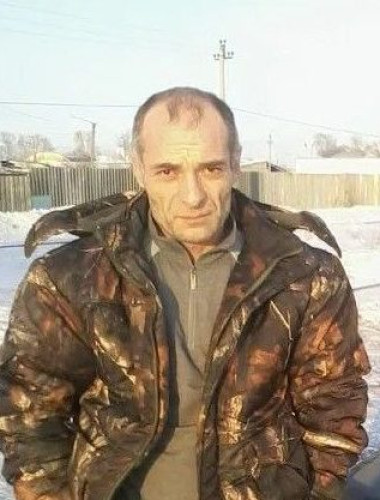Piruz Peikrishvili is a political prisoner
A resident of Khabarovsk Krai has been sentenced to six years in a penal colony on charges of repeatedly ‘discrediting’ the Russian army and spreading ‘fake news’
The ‘Political Prisoners. Memorial’ human rights project, in accordance with international standards, considers Piruz Peikrishvili a political prisoner. Peikrishvili was convicted on criminal charges of spreading information known to be false about the Russian army and of repeated ‘discrediting’ of the Russian army. Peikrishvili’s prosecution and conviction violated his rights to freedom of expression and a fair trial. We demand the immediate release of Piruz Peikrishvili and that all criminal charges against him be dropped.

What were the charges against Piruz Peikrishvili?
Piruz Peikrishvili, a resident of the village of Khurba in Khabarovsk Krai, regularly published posts about politics on his page on the Odnoklassniki social media site, including criticism of Russia’s war against Ukraine and mobilisation. As a result, he faced repeated administrative-law charges. On 29 May 2023, he was fined for ‘discrediting’ the army under administrative law.
On 13 December 2023, Peikrishvili was convicted of repeated ‘discrediting’ of the Russian army (Article 280.3, Part 1, of the Russian Criminal Code), for a video in which he criticised a presidential decree on military training and described the authorities’ actions as a betrayal of the country’s interests. He was given a one-year suspended sentence and banned from administering websites for two years.
Shortly afterwards, a new criminal case was opened against him on two charges: repeated ‘discrediting’ of the Russian army (Article 280.3, Part 1); and ‘spreading fake news’ about the Russian army (Article 207.3, Part 2) for comments about the war and what the blogger believed was an impending new wave of mobilisation. The case went to court in May 2024, and in September 2024, Peikrishvili was remanded in custody.
On 12 December 2024, Peikrishvili was convicted as charged. Taking into account the unserved portion of his previous sentence, he was sentenced to six and a half years in a penal colony and banned from administering websites for three and a half years on release. On 27 February 2025, a court of appeal overturned the aggregate sentence, on the grounds that Peikrishvili had made the posts which were the subject of his second prosecution before his first conviction had entered into force.
As a result, Peikrishvili was sentenced to six years in a penal colony and banned from publishing online for three years. His computer and mobile phone were also confiscated.
Why do we consider Piruz Peikrishvili a political prisoner?
The articles of the Russian Criminal Code on ‘fake news’ and ‘discrediting’ the Russian army, under which Peikrishvili was prosecuted, were adopted into law immediately after Russia began its full-scale war against Ukraine. These laws effectively criminalise any criticism of the authorities and any information about the war that diverges from the official version, in violation of the civil right to freedom of expression.
Moreover, the law on ‘fake news’ violates the principle of legal certainty since, in the given context, a person cannot know in advance what statements or information may be deemed false. Still less is it possible to prove that such information was ‘known to be false’ and, as such, intentionally spread.
These two articles of the Criminal Code contradict the Russian Constitution, the country’s international obligations and fundamental principles of law. We consider all charges brought under them to be unlawful.
Peikrishvili’s prosecution under unlawful legislation speaks to the fact that his publications posed no real danger to society. Anti-war statements in themselves should not be grounds for criminal prosecution, let alone imprisonment. On the contrary, criticism of the war is beneficial to society.
A detailed description of Piruz Peikrishvili’s case and of our position is available on our website.
Recognition of an individual as a political prisoner does not imply the project, ‘Political Prisoners. Memorial,’ agrees with, or approves, their views, statements, or actions.
How can you help?
You can write to Piruz Peikrishvili at the following address:
In Russian: 681000, Хабаровский край, г. Комсомольск-на-Амуре, Центральный округ, ул. Пионерская 23а, ФКУ СИЗО-2 УФСИН России по Хабаровскому краю, Пейкришвили Пирузу Бессарионовичу, 1968 г. р.
EN: Piruz Bessarionovich Peikrishvili (born 1968), Remand Prison No. 2, Federal Penitentiary Service of Russia for Khabarovsk Krai, 23a Pionerskaya Street, Tsentralny district, Komsomolsk-on-Amur, Khabarovsk Krai, 681000, Russia.
You can also send emails via the ZT service (for payment with Russian bank cards), OVD-Info and Memorial-France (free of charge).
Please note that letters in languages other than Russian are highly unlikely to reach the intended recipient.
You can donate to help all political prisoners in Russia.
